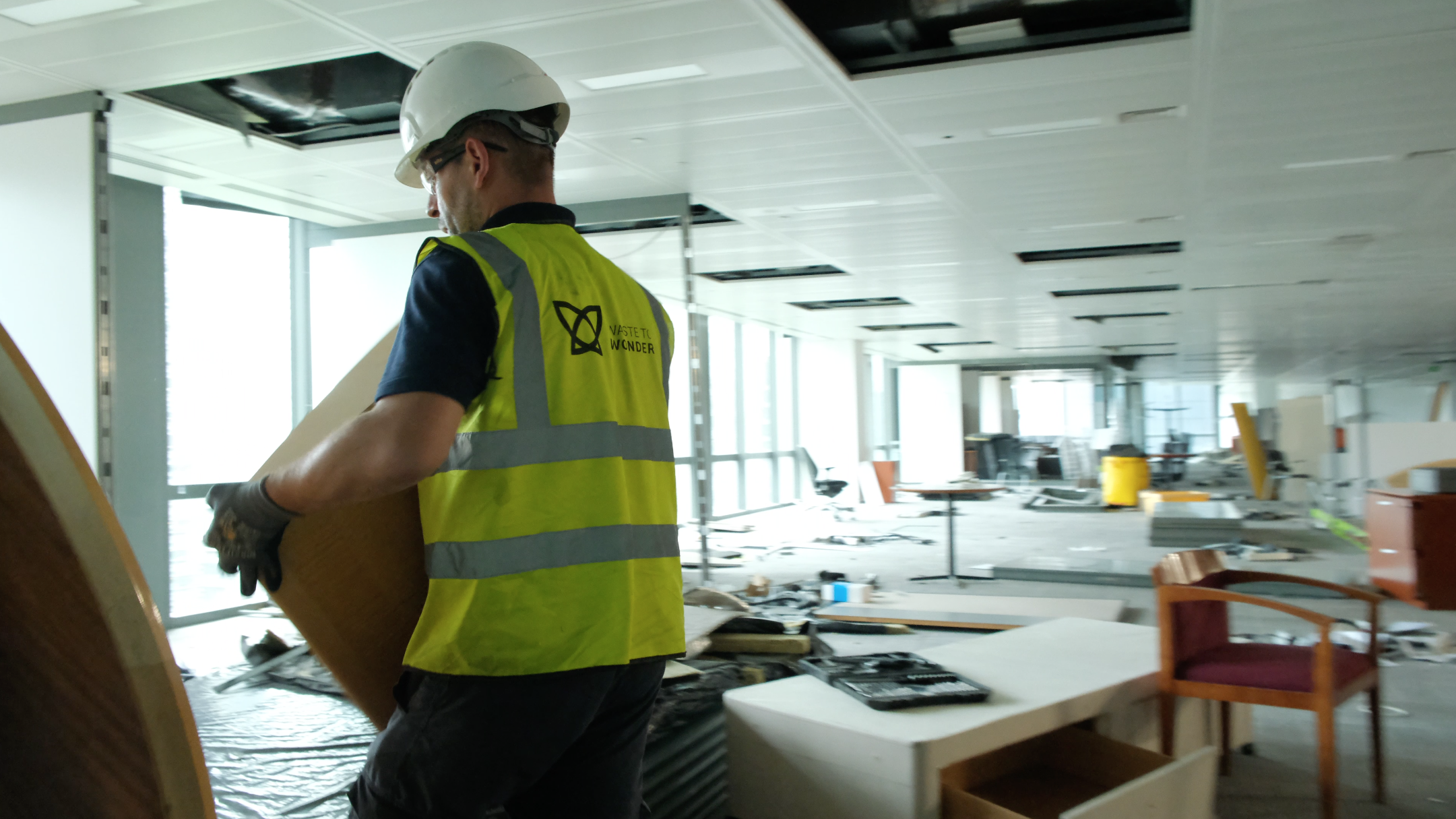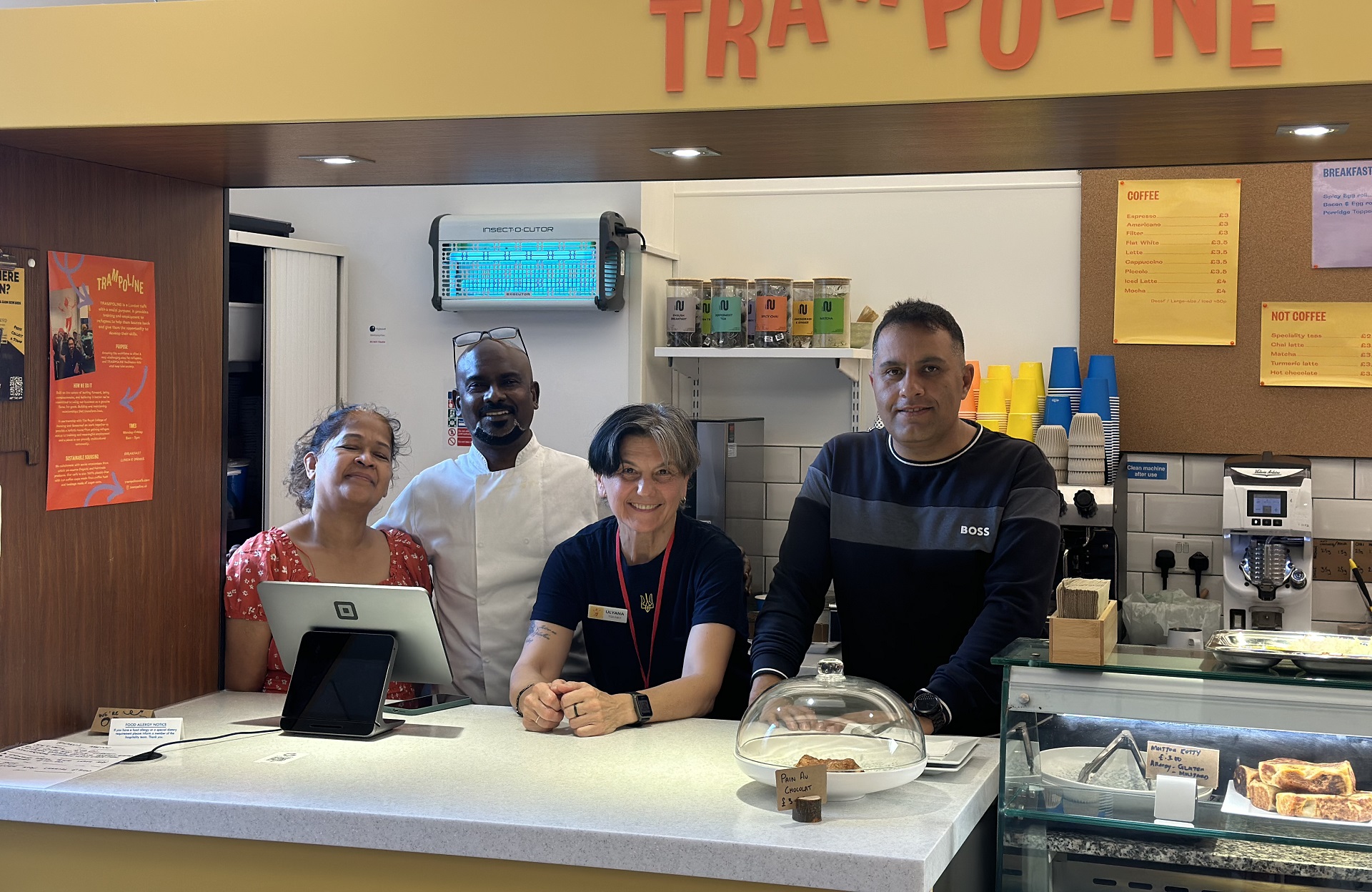
Case studies
Reclaiming resources and building futures: a new model for growth
Growing an economy needs entrepreneurs, and long-term growth also requires sustainable use of resources. One growing business ticks both boxes. After arriving from Australia as a backpacker in 2002, Michael Amos probably wasn’t expecting to be leading a recycling business 23 years later that has supported 1,500 schools in 44 countries. Waste to Wonder Worldwide offers a B2B ethical office clearance service, transforming redundant office furniture into life-changing resources. On average, 97% of furniture and equipment they receive is redistributed to schools, charities and community projects in the UK and globally. Any items not fit for reuse are responsibly recycled. Apart from the obvious feelgood factor, another attraction for clients, which include HSBC, IBM and Honda, is detailed ESG (environmental, social and governance) reporting based on the carbon saved and social impact it makes through its donations. Waste to Wonder report that, on average, their work has saved five million kilograms of CO2 being released into the atmosphere annually. In short, reusing furniture means less trees have to be cut down. “Not only does the Waste to Wonder solution help us to support charities and schools globally, but by donating waste furniture rather than sending it to landfill, we're significantly reducing our carbon emissions,” said Amy Baer, Global Executive Director ESG and Procurement at global commercial real estate services and investment firm CBRE. “Our most recent report highlighting the benefits of the CBRE and W2W partnership demonstrated total savings of 1.3m kg of carbon across its projects.” A measure of Waste to Wonder’s growth is the success of their ‘School in a Box’ programme. Each ‘School in a Box’ is a 40-foot container packed with approximately £25,000 worth of redundant furniture cleared for companies who prioritise reuse rather than recycling. The first School in a Box was delivered to Morocco in 2003 and by 2010 the total had reached 100. Fast forward to 2025 and 150 School in a Box shipments are now sent every year. Office furniture to the value of £45 million has now been donated and in 2024 Waste to Wonder reached a major milestone, donating its one millionth item. The company also supports many projects in the UK. It has provided kitchens for London’s Community Kitchen (LCK) which works to combat food poverty and reduce waste, including providing hot meals and food parcels for individuals and families facing crisis or hardship. LCK is guided by the belief that access to food is a basic human right. Waste to Wonder has also provided furniture for the University of East London’s Centre of Sustainability, which provides local people, businesses and UEL students and graduates access to affordable workspace alongside programmes to launch and grow businesses and develop the skills of East Londoners. “The natural thing was to talk to Waste to Wonder, and they just amazed us with the amount of quality second life furniture that they could bring into the space,” said Maxine Turney, Account Manager at Wagstaff Interiors Group, the commercial office company that fitted out the Centre of Sustainability. For Waste to Wonder’s Managing Director Michael Amos, the project offered the prospect of something more than furnishing a workspace. “This is an amalgamation of furniture that a large number of companies have decided they no longer need. For so many of our clients, potentially being able to come down and see the environmental impact of reuse is fantastic,” said Michael. There are many different kinds of growth. Waste to Wonder’s furniture is helping to grow a generation of entrepreneurs in East London. For their clients, seeing their office furniture reused shows them how their own businesses can create positive and social environmental impact, contributing to the communities outside of their offices. And Waste to Wonder’s ‘School in a Box’ programme is helping with the education of a new generation of citizens beyond the UK’s borders. To use the government’s own language, it’s the kind of growth that makes everyone better off. wastetowonder.com
3 min

